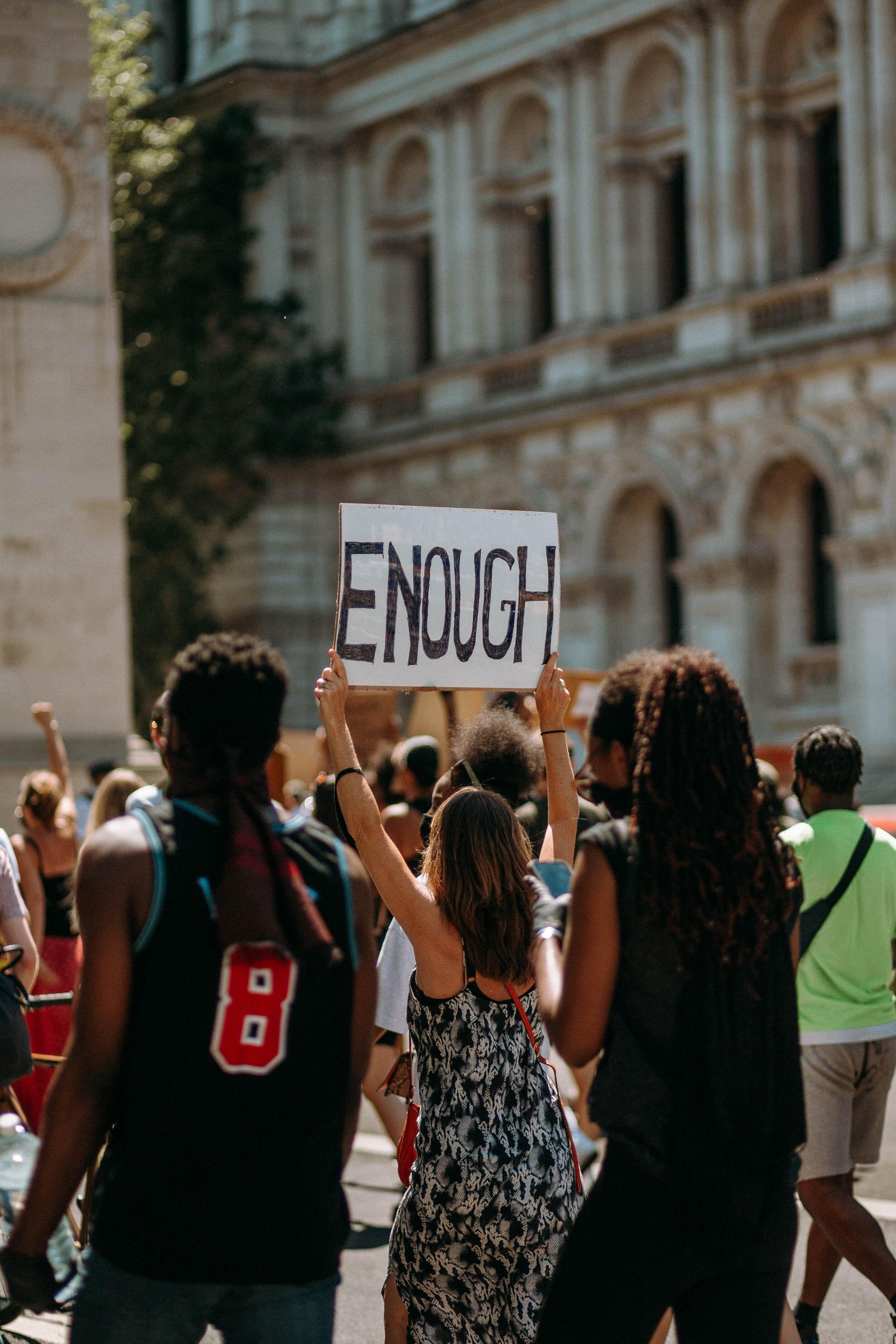Who am I? A reflection on microaggression
Priya Patel shares her experience of racism and microaggression growing up in the UK, and how this has impacted her identity as a British Indian second-generation immigrant.
Due to the pandemic, the world has been given a chance to pause and reflect for the first time in decades. The past couple of weeks have been a really pivotal time, both for our generation and for me as an individual. George Floyd’s murder has sparked a movement, enflaming the world in affliction and outrage towards racism. It has come at a time where we are able to spend our days dwelling on the shocking injustice still present in our society.
This recent tragedy has revealed a personal affliction of my own: a loss of self-identity. I am a relatively confident twenty-one-year-old woman who isn’t afraid to speak her mind. I was born and raised in the London Borough of Croydon. My family comes from Gujarat, a state on the western coast of India. I know all the facts about myself and have never consciously felt a lack of identity. However, recently I realised how much I have fought to isolate myself from my Indian cultural background. I decided to ask myself: why?
I would like to emphasize that, despite being a person of colour, I can’t even begin to understand the centuries of oppression that black men and women have suffered and continue to suffer on a daily basis. Nevertheless, thanks to the recent uproar in the press and social media, I have come to understand that racism can disguise itself in many forms: be it favouritism at school; fleeting jokes over lunch; or even the less than discreet judgemental glances across the tube platform. I have spent the last few days assessing the damage of twenty-one years’ worth of institutional racism. Let me share what I’ve learnt.
Institutional racism has become so incredibly deep-rooted that, shockingly, it is now run-of-the-mill in daily life. In fact, it is so commonplace that when asked if I had ever experienced racism, I always said no without a second thought (even though, upon recent reflection, I have realised this is not true in the slightest).
I experienced fifteen years of institutional racism at my high school. I have always known how unhappy parts of those fifteen years were for me, yet I never analysed the reasons why I felt so out of place. After reading an Instagram post shared by a friend who also attended the school, I felt as though a blindfold was being lifted from in front of my eyes. She bravely shared her experiences of overt and subtle racism during school. Although she is Sri Lankan, our form tutor of three years assumed her last name was the common Indian surname ‘Patel’. Appallingly, she was even given a school report card with this surname.
Now I reflect on those years with a bitter taste in my mouth. I remember how teachers only seemed able to remember the names of the white, blonde-haired, blue-eyed girls in my year. I remember the crude comments about my dark arm hair. My mum has even told me that, whilst attending the Parents’ Ball, a teacher came over to her table and exclaimed, “What a colourful table this is!”. These comments are not acceptable and although they may not be overtly racist, what they imply is just as discriminatory. They are loaded with prejudice and intolerance. They imply the idea of ‘other’. It’s no wonder I struggled to fit in.
My most tragic realisation is that I have an overwhelming feeling of shame for my background. This shame can be noted in two ways. Firstly, and horrifyingly, I’ve become racist towards my own race. Secondly, I’ve become ashamed of who I am. These are the revolting effects of institutional racism; it not only turns different races against each other, but it penetrates and manifests itself amongst people of the same race.
I now understand why I don’t wear gold jewellery. I now understand why I used to make my mum change her clothes before parents’ evening if she had been cooking Indian food with onions. I didn’t want to be acknowledged as Indian. When we were younger, my sister and I used to play make-believe games which would always begin with us saying, “OK, pretend I am beautiful with long blonde hair and my name is Lucy”. This shame was so deeply ingrained that when people told me that I didn’t look Indian or Asian I took it as a compliment. I denied ever experiencing racism in order to estrange myself as much as possible from the traditional Indian girl who would have most definitely experienced it. I am now ashamed of how ashamed I was.
Institutional racism has caused irreversible changes in me as a young woman. It now feels too forced to wear beautiful gold jewellery with the spiritual ‘om’ sign and it feels unnatural to start cooking Indian food at university. I have come to realise that the brief, seemingly innocuous comments I’ve received since early childhood have seeped into my subconscious and turned me against myself. Both microaggressions and overt racism can do irreversible harm. This is a powerful time to be alive; we have endless means of educating ourselves about racism and it is our responsibility to do so. I implore you to think about your actions, for they have severe consequences. I fear for a world where my children grow up to be ashamed of who they are.
I have now accepted who I am and, from now on, I won’t be ashamed. I will be proud of where I come from. Who am I? A British Indian second-generation immigrant, standing tall and proud.

